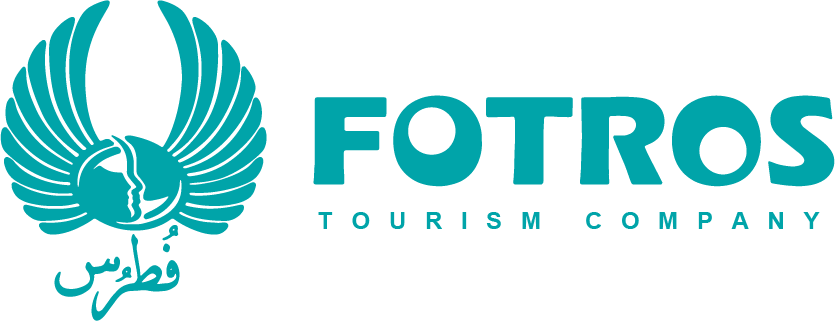
Medical Surgeries
Colectomy


A colectomy is a surgical procedure to remove all or part of the colon, which is also known as the large intestine. This surgery is typically performed for various medical conditions that affect the colon and cannot be effectively managed with other treatments. The suitability for a colectomy depends on the specific condition and its severity. Here are some common types of colectomy and the conditions they are suitable for:
Total Colectomy: In a total colectomy, the entire colon is removed. This procedure may be necessary for conditions such as:
• Familial adenomatous polyposis (FAP): A genetic condition characterized by the development of numerous polyps in the colon, which can lead to colon cancer.
• Ulcerative colitis: A chronic inflammatory bowel disease that affects the colon and can lead to severe inflammation, bleeding, and a high risk of cancer.
Partial Colectomy (Hemicolectomy): In a partial colectomy, a portion of the colon is removed. It is suitable for conditions such as:
• Colon cancer: When the tumor is localized and can be surgically removed, a partial colectomy is often performed.
• Diverticulitis: In cases of severe diverticulitis or complications, a portion of the affected colon may need to be removed.
Subtotal Colectomy: This procedure involves removing a significant portion of the colon, but some part of it is left in place. It may be performed for conditions like Crohn's disease, which can affect different parts of the colon, and removing the entire colon is not necessary.
Some individuals with a strong family history of colon cancer or certain genetic predispositions may choose to undergo a prophylactic (preventive) colectomy to reduce their risk of developing cancer.
The suitability for a colectomy is determined by a healthcare professional based on the patient's medical history, the severity of the condition, and the potential benefits and risks of the surgery. Colectomies are usually considered when other treatments have not been effective or when there is a high risk of complications or cancer. The specific type of colectomy chosen will depend on the individual patient's condition and the extent of colon involvement.
It's essential for patients to discuss their condition and treatment options with their healthcare provider to determine whether a colectomy is the right choice for them. The procedure may have both short-term and long-term effects on bowel function, and the decision should be made after careful consideration of the potential benefits and risks.
Before Colectomy:
Diagnosis: Colectomies are typically performed to treat conditions such as colon cancer, diverticulitis, Crohn's disease, ulcerative colitis, or other serious colon issues. Before the surgery, you'll undergo various tests and examinations to determine the extent of the problem and to plan the surgical approach.
Preoperative Evaluation: You'll have a preoperative evaluation to assess your overall health and fitness for surgery. This may include blood tests, imaging studies, and consultations with an anesthesiologist.
Bowel Preparation: In some cases, you may need to undergo a bowel preparation to cleanse the colon before surgery. This often involves a special diet and laxatives to ensure the colon is as clean as possible.
Informed Consent: Your surgeon will discuss the procedure, potential risks, benefits, and alternatives with you, and you'll provide informed consent for the surgery.




After Colectomy:
Hospital Stay: The length of your hospital stay after a colectomy varies depending on the type of surgery and your individual recovery. It can range from a few days to a week or more.
Pain Management: You'll likely experience pain after the surgery. Pain management strategies, including medication and sometimes epidural or patient-controlled analgesia (PCA), will be used to keep you comfortable.
Diet Progression: You will start with a clear liquid diet and gradually progress to solid foods as your digestive system recovers. The timeline for this progression will depend on your specific case.
Activity: Initially, you'll be encouraged to get out of bed and walk as soon as possible to prevent complications like blood clots. Your activity level will increase gradually as you recover.
Stoma Care (if applicable): If you have a colostomy or ileostomy, you'll receive instructions on how to care for the stoma and use an ostomy bag.
Follow-up Care: After leaving the hospital, you'll have follow-up appointments with your surgeon to monitor your recovery and address any concerns.
It's important to note that the recovery process can vary significantly from person to person, and your surgeon will provide you with specific instructions based on your condition and the type of colectomy you undergo. Be sure to follow your surgeon's guidance and communicate any unusual symptoms or concerns during your recovery.
Why Iran
Colectomy is a surgical procedure in which a portion or the entire colon (large intestine) is removed. The suitability of Iran for colectomy, like any medical procedure, depends on several factors. Iran has a well-developed healthcare system with many qualified healthcare professionals and modern medical facilities, making it a suitable location for colectomy. Here are some reasons why Iran may be suitable for colectomy:
Medical Expertise: Iran has a strong tradition of medical education and research, and many Iranian surgeons are well-trained and experienced in performing colectomy and other complex surgical procedures.
Multilingual Staff: Many healthcare professionals in Iran, particularly in urban areas, are proficient in English, which can be helpful for international patients who may not speak Persian.


Affordable Healthcare: The cost of medical procedures in Iran, including colectomy, is often lower compared to many Western countries. This makes it an attractive option for medical tourists seeking cost-effective treatment.
Modern Facilities: Major cities in Iran, such as Tehran, Shiraz, and Isfahan, have modern hospitals and healthcare facilities equipped with state-of-the-art technology for performing colectomies.
Medical Tourism: Iran has been actively promoting medical tourism, and some hospitals have dedicated departments or units for international patients, offering services such as airport pickups, translation services, and assistance with travel and accommodation.
High-Quality Care: Iran has a history of providing high-quality medical care, and patients from neighboring countries often seek medical treatment in Iran. The country's healthcare system is well-regulated, and the quality of care is generally good.
Cultural Tourism: Iran is a country with a rich cultural heritage and many historical and tourist attractions. Patients who come for colectomy can combine their treatment with cultural and tourist experiences.
It's essential for patients considering colectomy in Iran to do thorough research, choose a reputable hospital and surgeon, and ensure they have proper medical insurance or funds to cover the procedure and related costs. Additionally, patients should consult with their healthcare providers and consider the risks and benefits of traveling for medical treatment. Always consult with medical professionals to determine the best course of action for your specific medical condition.


Our services include:
![]() our online services include: quotes and consultation
our online services include: quotes and consultation
![]() Planning the highest word-level medical trips and quality hospitals and medical centers according to the patient's request and budget.
Planning the highest word-level medical trips and quality hospitals and medical centers according to the patient's request and budget.
![]() Appointing treatments by the most skilled and experienced doctors.
Appointing treatments by the most skilled and experienced doctors.
![]() Airport pick-up/drop off, check-ups, accompanying translator, book hotel (for patients and their families)
Airport pick-up/drop off, check-ups, accompanying translator, book hotel (for patients and their families)
![]() Pre-hospitalization / post-hospitalization care services
Pre-hospitalization / post-hospitalization care services
All-Inclusive Medical Travel Packages
based on your budget, our team will assist you in choosing the best hotels, doctors, and medical centers. Our packages include:
 Airport Pickup Services
Airport Pickup Services Airport Dropoff services
Airport Dropoff services Hotel
Hotel Ticket
Ticket visa
visa translator
translator Transfer
Transfer SIM Card
SIM Card Sightseeing
Sightseeing


 why Iran
why Iran
Patients may choose to have abdominoplasty (commonly known as a tummy tuck) in Iran for a variety of reasons
Cost, Quality of Care, Privacy and Discretion, Combined Tourism, no Waiting Times
![]()
Fotros is an Iranian health tourism company with a professional team consisting of a support team and word-level doctors in medical and cosmetic surgeries like Neurosurgery, Rhinoplasty, Breast cosmetic surgeries, Liposuction, tummy tuck, etc.










 why Iran
why Iran